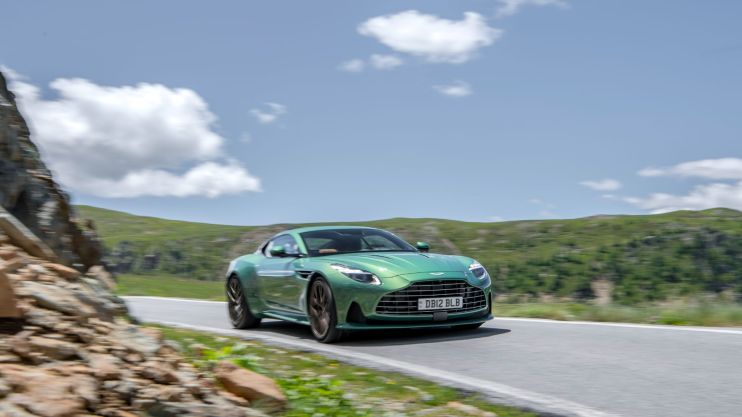Aston Martin: Share price plummets as DB12 snarl-ups bite

Aston Martin shares plummeted over 15 per cent this morning to the bottom of the FTSE 250, as the marque cited production issues with its new DB12 model.
The announcement panicked investors, despite losses halving on the back of strong demand for its other sportscar models.
Third quarter pre-tax losses shrunk 49 per cent to £117.6m, down from £225.9m the prior year. Revenues rose 15 per cent to £362m, with the carmaker citing revved-up deliveries of its Valkyrie supercar.
Aston Martin’s preferred profit measure — adjusted earnings before interest, tax, depreciation and amortisation — more than doubled to £50.5m, taking its year-to-date figure to £131m.
But supply chain snarl-ups at its newly launched DB12 saw the company temper its volume outlook for 2023, despite “exceptional demand” since its launch. It expects volumes for the DB12 this year to come to 6,700 units.
Amedeo Felisa, Chief Executive Officer, said: “Our year-to-date performance has seen us continue to make progress on our strategic direction with strong revenue and margin growth.”
Felisa continued: “During Q3 we commenced deliveries of the game-changing DB12, the first of our next-generation sports cars which has been met with industry-wide acclaim and exceptional demand since its launch.
“Given the slight delays in the initial production ramp up we have marginally updated our volume expectations for the year.”
Year-to-date revenues sit at just over £1bn and the FTSE-250 firm said it had seen strong demand in America and the UK, driven by sales of its DBX model.
Today’s slump comes after a stellar share price rally this year, with Aston Martin stock rising over 30 per cent since January, following years of sub-par performance since its 2018 IPO.
Yet the company is still struggling to turn a profit and has been hampered by high-interest debt for years. Net debt sat at £750m today, down 10 per cent year-on-year.
The company is plotting a route to quadrupling its adjusted EBITDA within five years and analysts have so far backed its resurgence.
Profits and revenues surged past market expectations in its last quarterly results, on “unprecedented demand“. Phillipe Houchois from Jefferies, the marque’s first stock analyst, finally lifted his rating from buy to hold in August.
Renewed investment from key stakeholders, the Chinese automaker Geely and billionaire chair Lawrence Stroll’s Yew Tree Consortium has also bumped up its share price.
Stroll’s outfit is now looking to get to grips with its electrification push, after signing a £182m deal with US-based Lucid and pledging £2bn to rev up production of high-performance electric sportscars.
Its first battery car will hit the market in 2025.